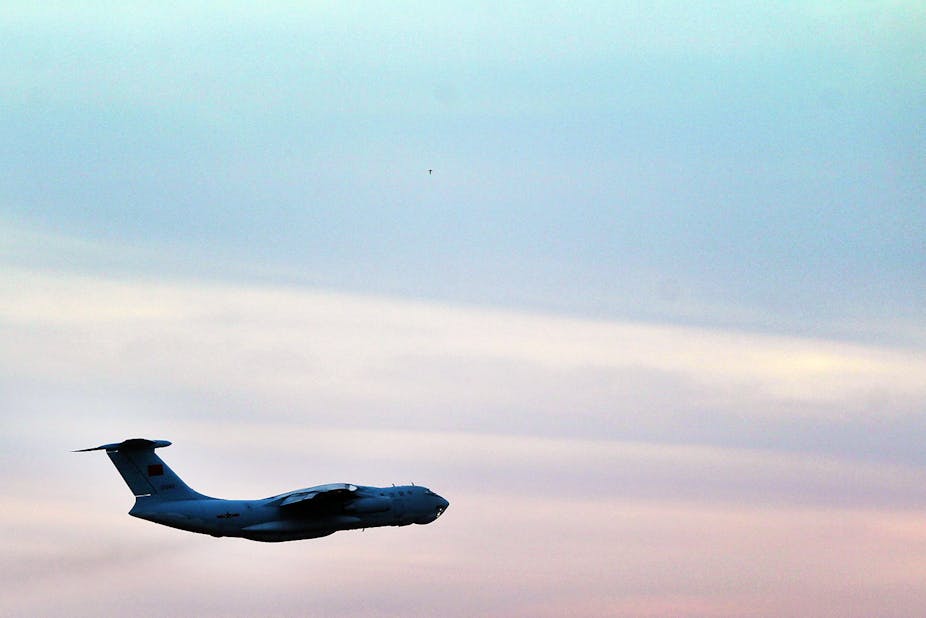Ultra was the Allies’ name for highly classified intelligence information obtained during World War Two by breaking encrypted enemy radio communications. “It was thanks to Ultra that we won the war,” Winston Churchill is reported to have told King George VI.
Much German radio traffic was encrypted on the Enigma machine, many codes of which the British could decipher. The downside was that military commanders sometimes could not act on Ultra intelligence because it might give away to the Germans that the Allies had access to Enigma traffic.
For example, during the Battle of Crete in 1941, the Allied commander on the island, New Zealand’s General Freyberg, did not move troops away from defending coastal areas despite Ultra intercepts indicating that a seaborne attack was improbable and an airborne invasion most likely. Freyberg alone had Ultra access but he did not act on it lest it reveal to the Germans that he knew their intentions. This led ultimately to the fall of Crete.
Slow to share on MH370
Much in accounts of the search for Malaysia Airlines Flight MH370 suggests that what might be called the Ultra Syndrome has been a factor. Quite simply, countries with access to sensitive surveillance information helpful to the search have been reluctant to reveal that data because it might give away their capabilities. Thailand has already admitted it had surveillance information that it did not share, at least initially, with Malaysia.

The Ultra Syndrome may also have been at work closer to home. While the Australian Maritime Safety Authority (AMSA) has not confirmed the origins of its information about debris in the Southern Ocean, it seems likely that a US military satellite was the source. AMSA’s spokesman has revealed that the satellite photos were taken several days earlier.
This begs the question: how long was that information available? And why was the search suddenly focused on an area of the Southern Ocean far from previous search areas? It may be argued that this was the limit of the aircraft’s fuel endurance along the southern corridor of its possible flight, but it was more likely in response to some, as yet unconfirmed, source of intelligence.
US surveillance data is highly classified and passed to only a very limited number of countries, including Australia. Any early release of such data would say a lot about US surveillance capabilities. As Fairfax journalist Peter Hartcher observed:
Australian officialdom is hyper-protective of US intelligence and its sources - even more protective than the Americans themselves … It’s a symptom of the Australian defence establishment’s mentality as an anxious junior ally, afraid of giving its senior partner any reason to curtail the flow of intelligence.
A record of information lapses
Australia has a past record of the Ultra Syndrome with our border protection arrangements. Over the years, there have been repeated breakdowns in communications between intelligence agencies and the wider border protection organisation (Coastwatch) and search and rescue authority. Intelligence relevant to the task in hand was not released to the latter agencies because no one in those agencies held the necessary security clearances.
While this problem has been overcome, including by embedding appropriately cleared Australian Defence Force (ADF) officers in Border Protection Command, lives have been lost through the failure of Australian agencies to coordinate effectively. The Ultra Syndrome lost these lives.
Militaries and intelligence agencies have a marked tendency to over-classify information and be protective of their sources. Navies talk a lot about maritime cooperation and the importance of information-sharing but there are major limitations to what they are prepared to do and share together. Some countries and navies have the reputation of being “vacuum cleaners”: they suck in information but give nothing out.
The vexed issue for policymakers is deciding when national security concerns should give way to saving human lives. When the dust settles on the MH370 saga, a positive outcome may well be that countries become less sensitive to sharing surveillance information important to effective search and rescue missions.
The two international agencies concerned, the International Civil Aviation Organisation and the International Maritime Organisation, should at least address the issue.

